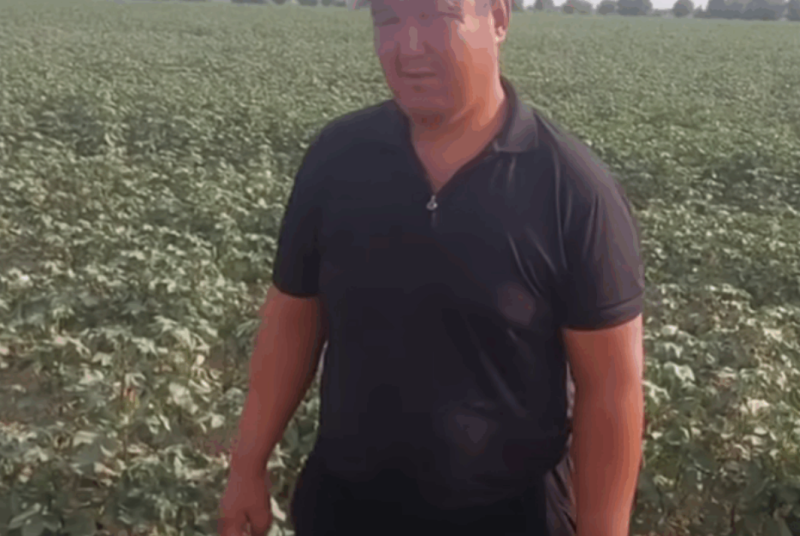Countries
Solidarity campaigns
Uzbek Farmer Punished with Water Cutoff After Refusing to Surrender Extra Grain to the State

Radio Ozodlik posted an appeal made by a farmer from Oltinsoy district (Surkhandarya region) who has accused the district hokim of deliberately cutting off his water supply in retaliation for refusing to surrender an additional 40 tons of grain beyond his contractual obligation.
In his video appeal Bobur Pardaev, a farmer from the Oltinsoy district, addressed the district hokim, Bahrom Mahmatraemov, standing in the middle of his wilted cotton field. In the video, Pardaev said that the hokim had instructed local irrigation authorities to deny his field access to water. As a result, the farmer said that half of his cotton harvest has already been destroyed.
“Never before have I failed to fulfill my contractual obligations for cotton or grain,” Pardaev said. “I was even awarded for high yields. Now look at my cotton—it’s all withered. Thank you, Bahrom Mahmatraemov. Today is June 29. Look what has happened to my field… The hokim ordered the irrigation organization not to give me a single liter of water.”
Pardaev said that irrigation was delayed by ten days, causing the cotton plants to dry out and shed their leaves prematurely. The root cause, is his refusal to deliver an additional 40 tons of wheat after he had already exceeded his contractual quota.
“I fulfilled 115% of my grain contract and delivered to the state 32 tons more than required. After that, the hokim demanded another 40 tons,” he said. “If I had them, I would have provided them. I didn’t want my cotton to suffer like this.”
Pardaev alleges that the local government failed to meet its regional grain quota and is now coercing farmers into handing over more than they agreed. Those who cannot comply, he says, are pressured into taking out high-interest bank loans—up to 25%—to purchase the grain and deliver it to the state.
The farmer revealed that he was assigned a 100 million UZS (7,860 USD) bank loan to buy additional grain, but he ultimately refused to sign the papers, not wanting to fall into debt. That’s when he says the pressure escalated.
Pardaev said that the hokim tasked the police with ensuring no water reached his land, undermining months of hard labor. “All possible threats were directed against me. I’ve fulfilled every legal and illegal demand the hokim made—except for this one,” said Pardaev. “And now he’s found the most effective punishment: stopping the water.”
When contacted by Ozodlik, Hokim Bahrom Mahmatraemov denied the farmer’s allegations. He argued that the hokimiyat (local administration) is not a party to agricultural contracts and that a farm is as a private entity and should settle any irrigation disputes through the courts.
“If the farmer has a complaint about the hokim, he can take me to court as well, Mahmatraemov said to Ozodlik.
Uzbek farmers regurlary report being ordered to provide wheat beyond agreed quotas. These complaints are rarely acted upon despite the apparent illegality.
Shavkat Kudratov, a farmer from the Shahrisabz district in the neighboring Kashkadarya region, echoed these concerns in an interview with Ozodlik.
“Hokims don’t follow the president’s orders. They issue their own orders. The Ministry of Agriculture gives different instructions. The farmer has never been free.”
Despite repeated promises of reform, Uzbek farmers continue to struggle from systemic coercion, vulnerability, and interference by state authorities.
Source:Uzbekforum.org
